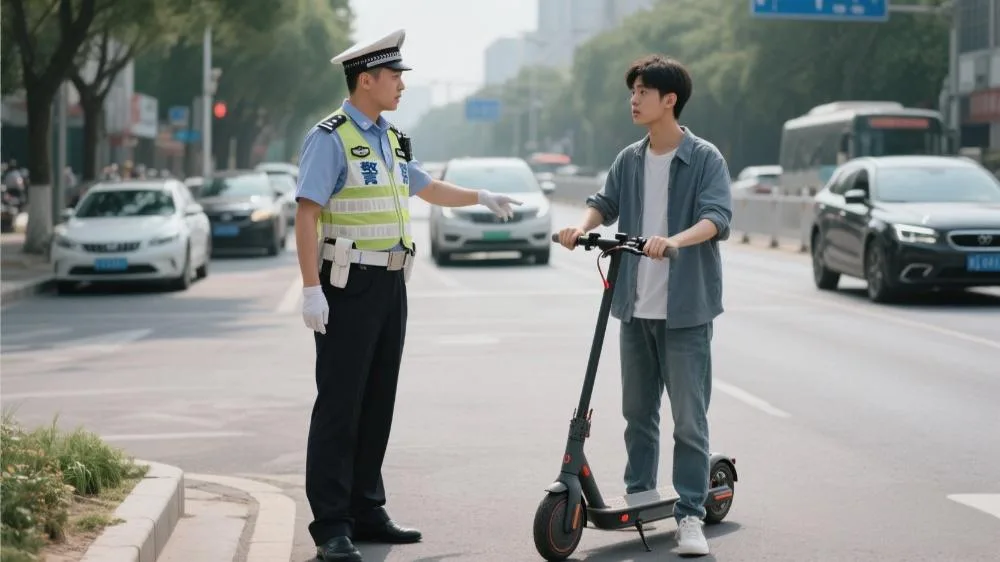Is an electric scooter a motorized vehicle

When London finance professional Sarah commuted across Waterloo Bridge on her e-scooter during rush hour, she never imagined she might be “driving an unregistered motor vehicle”—until police issued a ticket for precisely that violation. This scenario highlights Western e-scooter users’ most pressing 2025 dilemma: Is an electric scooter a motorized vehicle? The EU Transport Committee’s 2025 “Personal Light Electric Vehicle Classification Guidelines” reveals startling regional variations: In Germany, e-scooters over 500W are classified as light motorcycles, while France considers them non-motorized vehicles if speed-limited to 25km/h. Industry platform novascooter reports 68% of users remain unaware of local classification rules.
The U.S. NHTSA’s 2025 regulations introduced a “three-tier system”: Class 1 (non-motorized, ≤20km/h), Class 2 (speed-limited motorized, 20-32km/h), and Class 3 (full motorized, >32km/h). Cambridge Transport Institute research shows this classification confusion contributes to 31% of accidents involving right-of-way misunderstandings. Further complicating matters, the UK Department for Transport designates e-scooters as “powered transporters”—a hybrid category affecting insurance requirements and road access rights.

Legal Definitions
1. Core Classification Criteria
1.1 Technical Thresholds
EU 2025 Standardized Metrics:
- Power: >1000W sustained output = motorized
- Speed: Capable of exceeding 25km/h = motorized
- Weight: >55kg requires registration
- Pedals: Missing human-powered option triggers extra certification
1.2 Functional Characteristics
Judicial Determination Factors:
- Driver’s license requirements (16 EU nations mandate)
- Compulsory third-party liability insurance
- Motor lane access permissions
- Annual inspection applicability
2. Regional Regulation Comparison
2.1 European Policy Variations
National Classifications:
- Germany: L1e-class light motor vehicles (registered)
- Netherlands: Exempt if ≤25km/h
- Italy: 500W power threshold
- Sweden: Context-dependent categorization
2.2 North American Tier System
2025 Regulation Highlights:
- Class 1: Sidewalk permitted
- Class 2: Bike lane restricted
- Class 3: Motor lanes/prohibited
User Compliance Strategies
1. Legal Operation Solutions
1.1 Product Selection Guide
Regulation-Aligned Purchasing:
- Verify motor nameplate ratings
- Confirm software speed limiting meets certifications
- Check for geofencing systems
- Validate included compliance documentation
1.2 Risk Mitigation
Practical Checklist:
- Check government vehicle certification databases
- Retain purchase receipts and manuals
- Install official speed logging apps
- Regularly update speed-limiting firmware
2. Insurance and Liability
2.1 Coverage Requirements
2025 Insurance Market Data:
- Third-party liability: €45-120 annually
- Theft protection variations
- Personal accident special clauses
- Shared scooter platform defaults
2.2 Accident Protocols
Classification-Specific Procedures:
- Motorized: Police report + insurance claim
- Non-motorized: Standard accident process
- Hybrid: Fault percentage determination
Industry Implications
1. Manufacturer Compliance
1.1 Technical Adaptations
2025 Industry Solutions:
- Region-switchable power modes
- Geo-aware automatic speed reduction
- Blockchain compliance records
- Modular redesign flexibility
1.2 Market Strategy Shifts
Regional Product Lines:
- EU editions (enhanced CE certification)
- NA models (pre-configured classes)
- Emerging markets (cost-optimized)
2. Urban Management
2.1 Regulatory Technology
Smart City Implementations:
- Munich: AI unregistered vehicle detection
- Paris: Digital license plate trials
- Chicago: Acoustic speed monitoring
2.2 Infrastructure Adaptation
Road Space Reconfiguration:
- Tri-color lane marking systems
- Integrated charging/parking stations
- Hybrid traffic signal optimization
Future Trends
1. Regulatory Harmonization
1.1 Global Standardization
2025 Developments:
- UNECE technical regulation negotiations
- Accelerated ISO safety updates
- Cross-border recognition agreements
1.2 User Education
New Licensing Systems:
- Micro-vehicle online certification
- AR right-of-way simulations
- Blockchain driving records
2. Technological Boundary Blurring
2.1 Emerging Power Systems
Classification Challenges:
- Hydrogen fuel cell categorization
- Self-balancing system legal voids
- Shared autonomous scooter liability
2.2 Usage Analytics
Insurance Innovations:
- Riding habit-based premiums
- Safety scoring systems
- AI accident prevention assistants
